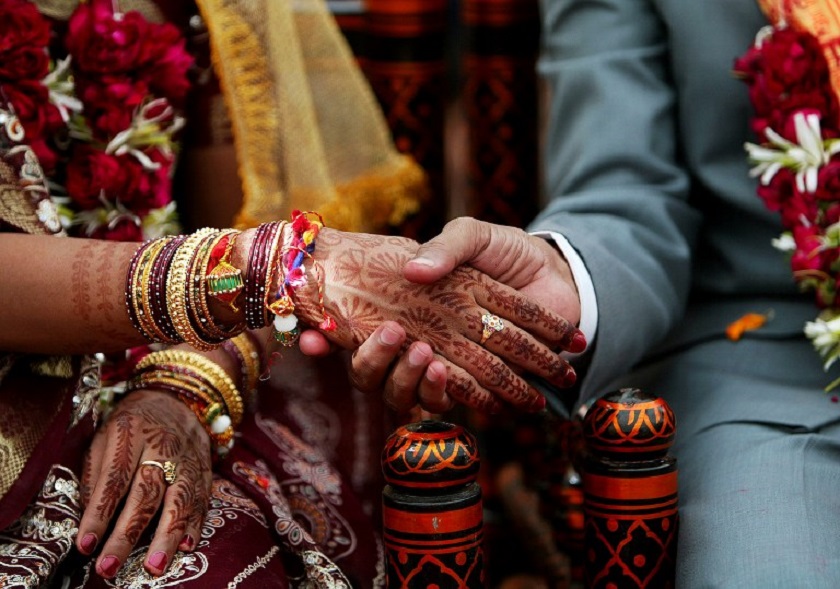Late Marriages: How Unemployment and Aspirations Are Redefining Matrimony
Srinagar 27 May 2025: In recent years, the institution of marriage has undergone a significant transformation. With changing societal norms, economic uncertainty, and increasing aspirations, many individuals are opting to tie the knot later in life. This shift has sparked a heated debate about the implications of late marriages on individuals, families, and society as a whole. As a senior editor, copywriter, and social expert, I’ll delve into the world of late marriages, exploring the reasons behind this trend, its effects, and what it means for the future of matrimony.
The Rise of Late Marriages
The age at which people get married has increased significantly over the past few decades. According to a report by the United Nations, the average age of marriage has risen by 2.5 years globally between 2000 and 2019. In India, the average age of marriage for women has increased from 18.3 years in 2001 to 22.5 years in 2020, as per the National Family Health Survey (NFHS-5).
This trend is not limited to India; many countries are experiencing a similar shift. In the United States, the median age of first marriage has reached an all-time high, with men marrying at 29.8 years and women at 28.4 years, according to the American Community Survey (ACS) 2019 estimates.
Unemployment and Financial Instability
One of the primary reasons contributing to the rise of late marriages is unemployment and financial instability. With increasing competition and a tough job market, many young adults are struggling to find stable employment, making it challenging to support a family. The financial burden of marriage, including dowry, wedding expenses, and maintaining a household, can be overwhelming, leading many to delay marriage.
A study by the International Labour Organization (ILO) found that youth unemployment rates are significantly higher than overall unemployment rates globally. In India, the youth unemployment rate stood at 23.4% in 2020, according to the Centre for Monitoring Indian Economy (CMIE).
The financial uncertainty and stress associated with unemployment can make individuals hesitant to take on the responsibilities of marriage and parenthood. As a result, many are choosing to focus on their careers, build financial stability, and achieve personal goals before settling down.
Aspirations and Changing Expectations
Another significant factor driving the trend of late marriages is the changing aspirations and expectations of individuals, particularly women. With increasing access to education and employment opportunities, women are redefining their roles and priorities. Many are choosing to pursue higher education, build careers, and achieve financial independence before getting married.
The rise of social media has also played a significant role in shaping expectations and aspirations. Platforms like Instagram and Facebook showcase the highlight reels of others’ lives, creating unrealistic expectations and a sense of competition. This can lead to a desire for financial stability, luxury, and experiences before settling down.
Moreover, the increasing awareness and acceptance of individualism, personal freedom, and self-expression have led to a shift in priorities. Many individuals are prioritizing personal growth, travel, and experiences over traditional expectations like marriage and family.
Impact on Relationships and Family Dynamics
Late marriages can have a significant impact on relationships and family dynamics. With both partners often having established careers and being financially independent, the dynamics of the relationship can be different. There may be more equality and mutual respect, but also potential conflicts arising from differing priorities and expectations.
Research suggests that couples who marry later in life tend to have lower divorce rates, possibly due to increased emotional maturity, financial stability, and better communication skills. However, late marriages can also lead to delayed parenthood, which may affect family dynamics and relationships between generations.
Societal Implications and Concerns
The trend of late marriages has significant societal implications and concerns. With declining fertility rates and delayed parenthood, many countries are facing demographic challenges, including aging populations and potential labor shortages.
In India, the declining sex ratio and increasing cases of singlehood, particularly among women, are concerns that need to be addressed. The societal pressure to get married and conform to traditional norms can lead to stress and anxiety for individuals who choose to delay or forego marriage.
Moreover, the increasing age of marriage can lead to a shift in family structures and dynamics, potentially affecting the care and support of elderly parents.
Redefining Matrimony and the Future
As the institution of marriage continues to evolve, it’s essential to recognize and adapt to the changing needs and expectations of individuals. The trend of late marriages is likely to continue, driven by factors like unemployment, aspirations, and changing societal norms.
To address the challenges associated with late marriages, governments, and policymakers can focus on creating employment opportunities, promoting financial stability, and providing support for families. Individuals can prioritize building strong relationships, communication skills, and emotional maturity to navigate the complexities of modern matrimony.
Ultimately, the future of matrimony will depend on our ability to adapt, evolve, and redefine what marriage means to us. By embracing the changes and challenges associated with late marriages, we can work towards creating a more inclusive, supportive, and loving environment for all.
Bottom-Line
Late marriages are redefining the institution of matrimony, driven by factors like unemployment, aspirations, and changing societal norms. While there are challenges associated with this trend, it’s essential to recognize the opportunities for growth, self-expression, and personal development that late marriages can bring.
As we navigate the complexities of modern matrimony, it’s crucial to prioritize building strong relationships, communication skills, and emotional maturity. By embracing the changes and challenges associated with late marriages, we can work towards creating a more inclusive, supportive, and loving environment for all.




